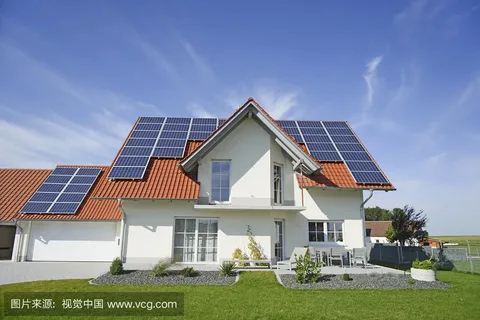As energy costs rise and concerns about environmental sustainability grow, more homeowners are turning to solar energy. Installing a solar power system is a smart investment, but it’s crucial to ensure that the system you choose fits your specific household requirements. In this article, we’ll explore how to choose the right home solar power system for your energy needs, guiding you through key considerations and options available.
Understanding Your Energy Consumption
Before shopping for a solar system, it’s essential to evaluate your current and future energy usage. Review your electricity bills to identify your average monthly consumption, usually listed in kilowatt-hours (kWh). Take note of any planned changes, such as adding electric vehicles or home expansions, which could increase your energy demand.
Types of Home Solar Power Systems
There are three main types of solar power systems for homes:
1. Grid-Tied Systems
These are the most common and cost-effective. They’re connected to the public electricity grid and don’t require batteries. If your panels produce more electricity than you use, the surplus is sent to the grid, often earning you credits (net metering).
2. Off-Grid Systems
Ideal for remote areas, off-grid systems are completely independent of the power grid and require battery storage. They tend to be more expensive but offer total energy independence.
3. Hybrid Systems
These systems combine grid access with battery storage. They provide backup power during outages and can reduce reliance on the grid.
Choosing among these options is a crucial step in determining how to choose the right home solar power system for your energy needs.
Key Factors to Consider
1. Solar Panel Efficiency and Quality
Not all solar panels are created equal. Higher-efficiency panels generate more electricity from the same amount of sunlight, which is especially useful for homes with limited roof space.
2. Roof Suitability
Evaluate your roof’s orientation, angle, and shading. South-facing roofs typically get the most sun exposure in the Northern Hemisphere. An assessment by a solar professional can help determine the best panel placement.
3. Battery Storage Needs
If you live in an area with frequent outages or want to use more of your own solar energy, consider a battery system. However, batteries add to the upfront cost, so weigh the benefits against your budget.
4. System Size
System size should closely match your energy needs. A system that’s too small won’t offset your electricity usage effectively, while one that’s too large may be an unnecessary expense.
Installation and Incentives
Work with a reputable installer who can assess your property and recommend the best solution. Also, research available government incentives, tax credits, and local rebate programs. These can significantly reduce the upfront cost and influence how to choose the right home solar power system for your energy needs.
Conclusion
Making the shift to solar energy is a major step toward energy independence and environmental responsibility. But to make the most of your investment, it’s essential to know how to choose the right home solar power system for your energy needs. By understanding your energy usage, evaluating system types, and considering factors like panel quality and roof suitability, you can find a system that meets your needs and offers long-term benefits.



